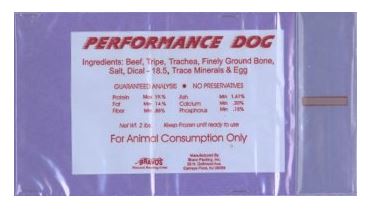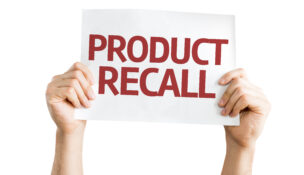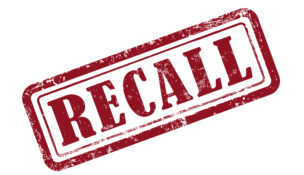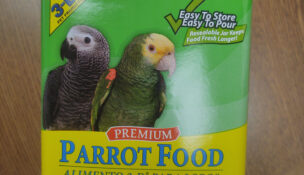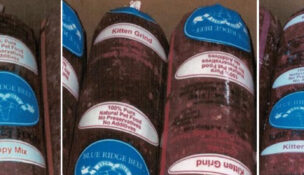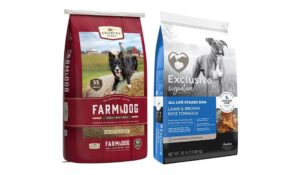FDA Recalls Performance Dog Raw Pet Food Due to Salmonella, Listeria
Pet Age Staff//October 1, 2019//
FDA Recalls Performance Dog Raw Pet Food Due to Salmonella, Listeria
Pet Age Staff //October 1, 2019//
The following warning was posted on the FDA’s site on September 26. Joe Merola, owner of Bravo Packing Inc., said October 1 he’s been informed that the FDA has recalled the Performance Dog frozen raw pet food and that the agency may have recalled the non-distributed beef raw pet food.
The U.S. Food and Drug Administration is cautioning pet owners not to feed their pets Performance Dog frozen raw pet food purchased after July 22, 2019, because a sample tested positive for salmonella and listeria monocytogenes.
The FDA collected two samples of raw pet food manufactured by Bravo Packing Inc. (Performance Dog and a beef variety) during a routine inspection of the manufacturing facility in Carneys Point, N.J. The sample of Performance Dog raw pet food lot 072219 tested positive for salmonella and L. mono. The sample of the beef raw pet food tested positive for salmonella, but the product had not yet been distributed.
This is the second time Bravo Packing Inc. product has tested positive for pathogen contamination. In September 2018, Bravo Packing Inc. recalled all Performance Dog frozen raw pet food due to salmonella. Also, during a 2016 inspection, the FDA collected samples of Bravo Packing, Inc. horse meat chunk animal food that tested positive for the drugs pentobarbital and phenytoin.
The FDA is advising the public about Performance Dog raw pet food because this product represents a serious threat to human and animal health. Because retail packaging is not printed with lot code information, FDA is cautioning about all Performance Dog raw pet food purchased after July 22, 2019.
Bravo Packing Inc. Performance Dog products are sold frozen in two-pound plastic pouches. Lot codes are printed on the outside of the boxes used to distribute the product, but the lot codes are not printed on the individual sealed plastic pouches, also known as chubs. Therefore, there are no unique identification numbers on the individual chubs that would allow customers to verify whether their product belongs to the affected lot.
If you have Performance Dog raw pet food that you purchased after July 22, 2019, or you are uncertain of the date of purchase, and you cannot determine the lot code, FDA recommends that you exercise caution and throw the product away.
If you have any of the affected product, stop feeding it to your pets and throw it away in a secure container where other animals, including wildlife, cannot access it.
Consumers who have had this product in their homes should clean refrigerators/freezers where the product was stored and clean and disinfect all bowls, utensils, food prep surfaces, pet bedding, toys, floors, and any other surfaces that the food or pet may have had contact with. Because animals can shed the bacteria in the feces when they have bowel movements, it’s particularly important to clean up the animal’s feces in yards or parks where people or other animals may become exposed, in addition to cleaning items in the home. Consumers should thoroughly wash their hands after handling the affected product or cleaning up potentially contaminated items and surfaces.
Retailers, distributors and other operators who have offered the affected products for sale should wash and sanitize display cases and freezers where the products were stored.
Salmonella is a bacterium that can cause illness and death in humans and animals, especially those who are very young, very old, or have weak immune systems. According to CDC, people infected with salmonella can develop diarrhea, fever and abdominal cramps. Most people recover without treatment, but in some people, the diarrhea may be so severe that they need to be hospitalized. In some patients, the salmonella infection may spread from the intestines to the blood stream and then to other body sites unless the person is treated promptly with antibiotics. Consult your health care provider if you have symptoms of salmonella infection.
Pets do not always display symptoms when infected with salmonella, but signs can include vomiting, diarrhea (which may be bloody), fever, loss of appetite and/or decreased activity level. If your pet has these symptoms, consult a veterinarian promptly. You should also be aware that infected pets can shed the bacteria in their feces and saliva without showing signs of being sick, further contaminating the household environment.
Listeria monocytogenes is a bacterium that can cause illness and death in humans and animals, especially those who are pregnant, very young, very old, or have weak immune systems. According to CDC, listeriosis in humans can cause a variety of symptoms, depending on the person and the part of the body affected. Symptoms can include headache, stiff neck, confusion, loss of balance, and convulsions in addition to fever and muscle aches.
Pregnant women typically experience only fever and other flu-like symptoms, such as fatigue and muscle aches. However, infections during pregnancy can lead to miscarriage, stillbirth, premature delivery, or life-threatening infection of the newborn.
Pregnant women and their newborns, adults age 65 and older, and people with weakened immune systems are more likely to get sick with listeriosis. Anyone with symptoms of listeriosis should contact a health care provider.
L. mono infections are uncommon in pets, but they are possible. Symptoms may include mild to severe diarrhea; anorexia; fever; nervous, muscular and respiratory signs; abortion; depression; shock; and death. Pets do not need to display symptoms to be able to pass L. mono on to their human companions. As with salmonella, infected pets can shed L. mono in their feces and saliva without showing signs of being sick, further contaminating the household environment.
Pet foods and treats contaminated with salmonella and L. mono are of particular public health importance because they can affect both human and animal health. Pets can get sick from these pathogens and may also be carriers of the bacteria and pass it on to their human companions without appearing to be ill. People can get sick from handling contaminated pet foods and treats or touching surfaces that have had contact with the contaminated pet foods and treats. Additionally, if a person gets salmonella or L. mono on their hands, they can spread the bacteria to other people, objects and surfaces.
